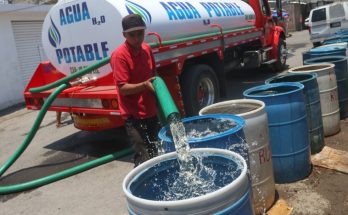By Alejandro Angulo
Addressing the challenge of climate change implies taking whatever concrete actions are necessary, year after year. What is important is to advance transformation and to take the right trajectory. The municipality of Querétaro is taking actions to address climate change. The municipal Institute of Ecology and Climate Change was created at the start of the present administration. It has formulated the following points:
- The climate change program seeks to work with other municipalities.
- Energy efficiency audits will be carried out with other municipal entities, aiming to have certifications for low carbon emissions. Two certificates were granted last year to two delegations that met the parameters of low carbon emissions—the historical center and Carrillo Puerto. The aim is to achieve savings, improve efficiency, and reduce carbon emissions.
- Clean energy: Continuing from last year, the Secretary of Sustainable Development will continue with the clean energy project. This will be done through installation of solar panels in micro-businesses, a concurrent project with the state Secretary of Sustainable Development. This will hopefully lead to an increase in investments and positively impact a large number of businesses. Installation of solar panels will undoubtedly contribute to the reduction of carbon emissions and the diversification of the energy sources in the municipality and the state.
- In terms of carbon capture, the municipality will be a pioneer in the placement of carbon credits from its environmental assets. From carbon storage in biomass and soil, as in Parque La Barreta, to the local voluntary market. A protected natural area will not only provide a space for natural recreation, but also environmental services, including CO2 capture for the entire population of the municipality.
- In regulatory matters, the municipality is implementing environmental licensing. With this, emissions of polluting gases such as carbon into the atmosphere will be considered.
- Environmental services: Consideration is given to the fact that warming impacts pollinators. These, in turn impact, biodiversity and agricultural productivity. The municipality, therefore, has implemented the payment of environmental pollination services to strengthen beekeepers, who are the main contributors to the pollination process.
The path that the municipality of Querétaro has taken to face climate change involves various actions that range from programming and energy audits. The diversification of energy sources from clean renewable energies takes advantage of solar irradiation in the state. The environmental and economic revaluation of protected natural areas as a carbon sink contributes to the conservation of environmental services. This is particularly so in reduction and capture of CO2, payment for environmental pollination services, and environmental regulation for businesses and the granting of environmental licenses for certain lines of business.
The municipality of Querétaro has become a leader in the state of Querétaro, successfully implementing environmental innovations and programs. It is contributing to the fulfillment of the central objective: to lay the foundations for a sustainable, resilient, and low carbon municipal development and to reduce the negative effects of climate change. Complementary to the logical framework, the municipal Institute of Ecology and Climate Change is based on the Theory of Change (ToC) approach. It is an analytical model that emerged in the 90s explaining the reasons for government intervention, public policy, or an organization that contribute to achieving an objective or desired change. It also involves reconstructing the causal chains for the achievement of said objective.
Theories of change are widely used today at the international level for the design, planning, monitoring, and evaluation of complex policies, including environmental and climate change policies.
The Municipal Climate Change Program of the municipality of Querétaro lays the foundations to move towards sustainable municipal development, protection of the environment and natural resources, resilience, and the lowering of carbon. All this will reduce the negative effects of climate change. The same program also focuses on the protection of human rights in the municipality of Querétaro, particularly the human right to a healthy environment.
Information, public awareness, and social participation are fundamental for the new governance model. Dissemination of knowledge is just as important because it leads to a better-informed population.




